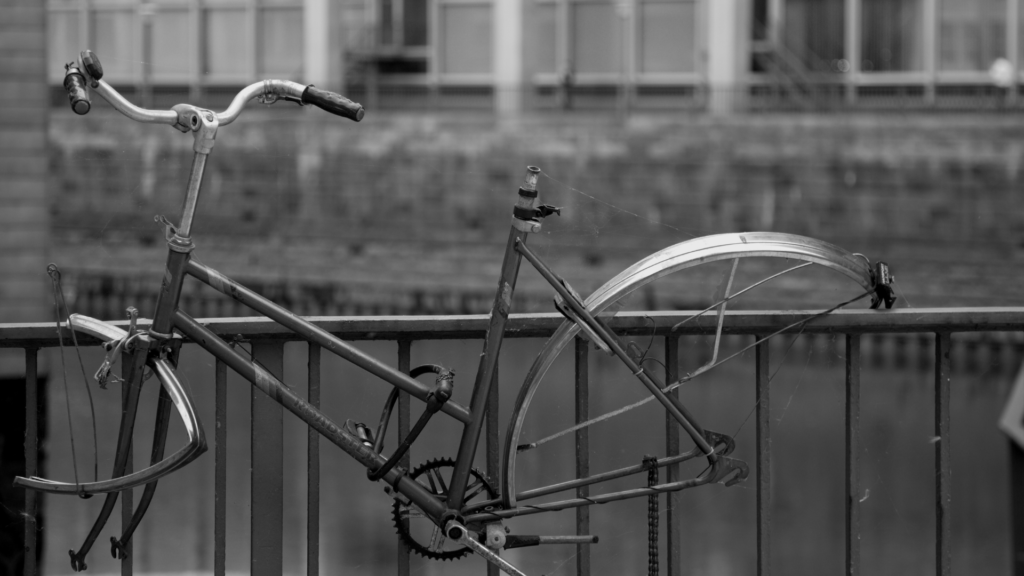Almost ten years after first considering the idea, the Brussels police may finally be able to implement “bait-bikes” equipped with GPS trackers to lure and follow would-be-thieves.
The technique, which originated from the Netherlands and has already been successfully implemented in Ghent, allows police to trace the stolen bike to its location and apprehend the culprit.
The idea of bait bikes was first brought to the capital some time ago under State Secretary for Mobility Bruno De Lille in 2009, according to Florine Cuignet from cyclist action group GRACQ.
"At this point, De Lille started working together with the public prosecutor and two Brussels police zones to deploy the bicycles to monitor thefts," she recalled.
The use of decoy bikes was then publicly announced in 2014 by De Lille as part of a new strategy in the Brussels Capital Region to tackle bicycle theft. The original aim of this initiative was to form a better picture of where stolen bicycles end up in order to devise an effective prevention policy.
However, the use of this technique wasn't approved by the government until 2016, at which point seven bait bikes were prepped and dispatched to the police by Bruxelles Mobilité, according to Sofie Walschap of Bruxelles Mobilité.
Since then, however, none of Brussels’ six police zones have put them into practice.
“We worked a lot on trying to implement these bait bikes, which had been approved by the government in 2016, but the Brussels public prosecutor’s office was not willing to take this to the final steps,” explained Walschap.
Sometime last year, Olivier Slosse, spokesman for the Brussels Capital-Ixelles zone was told by the Brussels Public Prosecutor's office that there would be a possibility for the police to implement these bikes. However, before that could happen, various administrative and legal hurdles had to be overcome.
A Very Belgian Bike Theft Problem
According to Slosse and various cyclist organisations, legal complications are the main reason bait bikes are being kept off the streets of Brussels.
“These bikes have been available in Brussels for quite some time, which is definitely an advantage. However, to implement the use of them is quite challenging from a legal perspective, as they involve detection techniques, and there are certain rules around these techniques that are not always easy to follow,” Slosse said.
“Right now, we have someone in our department who is compiling this case file, and is researching the legal requirements to be able to implement these bait bikes on a larger scale," he emphasised, so they can 'completely avoid committing or provoking crimes' themselves.
However, the creation of such a file, a key factor in the push to launch the bikes, could prove complicated due to a lack of data on bike thefts in Belgium.
“We have very little data on bike thefts, we just know that they take place everywhere in Belgium, from Brussels, to Ghent, to Antwerp,” Luc Goffinet from GRACQ explained.
Although some police officials are working to catch bike thieves, Goffinet believes the prosecutors don't want them to use bait bikes because they don't want more cases. "Right now, they don't see [bike theft] as a priority, and we don’t understand why," he added.
Further issues arise from the disagreement between both sides of the argument with what to do with culprits once they have been caught.
On the one hand, the public prosecutor's office agreed to the bait bikes under the condition that the thief will be arrested immediately, according to Walschap.
On the other hand, doing so minimises the effect of the main advantage to this system, as it makes it more difficult to implement it as a strategy to tracking down and catching gangs by using these vehicles to understand the large patterns behind these thefts, Walschap explained.
“If a thief is caught red-handed now, they will be in trouble for a short while, but those people are eventually released. If you can follow the bike to the depot and dismantle the gang behind it, that is a cut in the chain of such a gang, and also the police can find and recover many more bikes at once.”
Related News
- Ghent police use bait-bikes to catch thieves
- Brussels will make slopes of Justice Palace car-free from March
- Belgian gritter goes viral after creative salt spreading
- Ice skating not allowed in Flanders because of coronavirus rules
Progress Before The Summer
“This is a measure that is easy to implement and that can really have many benefits,” Walschap concluded.
Looking at the bigger picture, communicating the success of tackling this problem at the root in this way may provide a sign of hope and change the minds of people who do not want to invest in a bicycle because they are afraid of theft.
“We think this is a very interesting technique, and are now preparing the proposition to get it approved so we can implement this legally,” Slosse told The Brussels Times. “We hope that this can be implemented before the summer.”
The Brussels Public Prosecutor’s office did not respond to a request to comment on the new plans.
Lauren Walker and Helen Lyons
The Brussels Times


